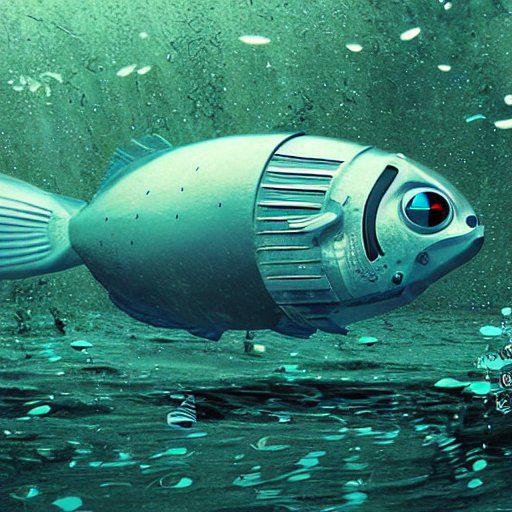
Let’s talk about carp.
I ran across this video from Tom Scott about invasive Asian carp. What began decades ago as a well-meaning experiment to control algae in US reservoirs and treatment ponds has turned into an ecological disaster. Algae-chomping carp escaped into the wild and did what they do best: chomp some more. They wiped-out lake and river ecosystems, consuming all available resources and crowding out the native life. The video is worth a watch, even if just for the sobering visual of a river so teeming with jumpy carp that boats need overhead netting to protect passengers from getting concussions.
Naturally, these carp have me thinking about AI.
Maggie Appleton’s The Expanding Dark Forest and Generative AI chillingly describes the existential challenge we face on today’s Web: asserting our essential humanity. As generative AI tools get ever smarter, it will become ever harder to tell if the person you’re interacting with online is, in fact, a person at all.
Our track record with the imitation game so far isn’t great. If we can’t tell artificial from organic, and if those artificial voices speak at a scale and speed we cannot match, then it follows that humans will at some point cease to be the Web’s primary users.
Rather than a dark forest, the future looks to me a lot more like an ecosystem that’s been taken over by an invasive species.
Outnumbered, preyed upon, and starved of resources, humans will flee the open Web for the safety of walled gardens and hidden spaces. This depopulation of the visible Internet is already happening, but AI will dramatically accelerate the trend. Venturing onto the Web will become unwise, and those who do so will need head protection.
The best way to handle an invasive species, of course, is to prevent its introduction into a foreign ecosystem in the first place. That ship has sailed, both for AI and the carp.
That leaves us with mitigation. There are many ways to deal with invasive species by limiting their spread, containing the damage, and even restoring impacted ecosystems. None of the options are easy or entirely harmless, and success is never guaranteed. But when the stakes are high, the impractical becomes necessary. Just watch the video linked above, which focuses on one rather hardcore solution to the carp problem: electrocuting an entire river.
We need to start thinking about mitigation strategies to ensure the Web ecosystem survives its hungry new invader. Ideally, before we find we ourselves turning to such extreme measures.
(Image source: Stable Diffusion, naturally)